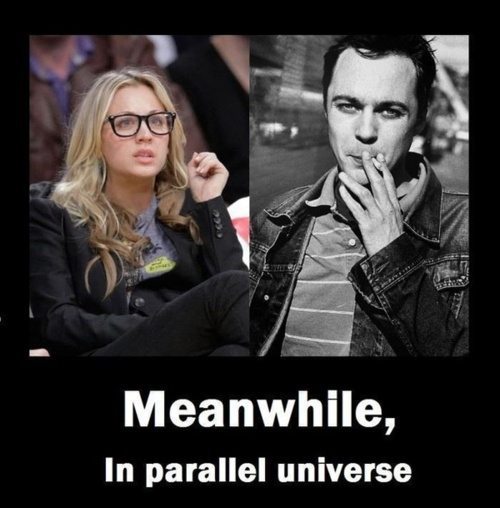It looks like you're using an Ad Blocker.
Please white-list or disable AboveTopSecret.com in your ad-blocking tool.
Thank you.
Some features of ATS will be disabled while you continue to use an ad-blocker.
8
share:
Hey guys. This thread is inspired by randyvs creation thread.
And now for something completely different.
en.m.wikipedia.org...
So, since emanation doctrines are opposed to both creationism (creatio ex nihilo) and materialism, the attacks will come from both sides. Should be good for a few kicks. A three-way brawl! 😲
So to get the ball rolling, here is an excerpt from Western Esotericism: A Guide for the Perplexed by Wouter Hanegraaff.
"The doctrine of creatio ex nihilo is in fact not biblical (it was introduced by Theophilus of Antioch and Tatian in the second century15), but Thomasius did not know that. Against the sharp ‘biblical’ distinction between God and the world, or Creator and creation, paganism made the world eternal like God himself. All heretical beliefs came from that core error: the doctrine of emanation (souls or intelligences are not newly created by God out of nothing but pour forth from his eternal essence), dualism (form and matter, or God and matter, are equally eternal), pantheism (the world is God) and materialism (God is the world). In their different ways, they all amounted to deification of the creation at the expense of its Creator.
Through the devil’s machinations, these doctrines had infiltrated Christianity, particularly in the form of Platonism. Thomasius rejected any such continuation of pagan philosophy in the context of Christianity as a case of syncretism, and thus of heresy, whether it occurred in the Fathers and Roman Catholic doctrine or in the various forms of Gnosticism and other sectarian movements that had sprouted from the ‘arch-heretic’ Simon Magus. It is important to understand that, following the logic of Thomasius’ argument, the entire history of the Church prior to the Reformation had now become synonymous with the history of heresy.
In fact, history as such was equivalent to the development of error: in contrast to the absolute truth of God’s Word in the bible, which was beyond time and development by definition, Church history as a whole could be described as a continuous emergence of false doctrines followed by successive attempts at pious reconstitution. And this process had not even ended with the Reformation: in spite of Luther’s revolution – the most serious attempt, so far, to lead Christianity back to the gospel – the pagan heresies of Platonism were now emerging as heterodox spiritualities even in Protestant contexts. These were the many ‘spiritualist’ and theosophical sects that flourished during the seventeenth century. What they all had in common, Thomasius pointed out, was their extreme emphasis on personal religious experience at the expense of doctrinal belief.
The common term for this phenomenon was Enthusiasm (Schwärmerei), and again it was based on the core error of the eternity of the world – in this case in the form of the Platonic doctrine of emanation and restitution, which claimed that the soul has its origin in an eternal, divine substance (the divine light-world) and will return to it again. Emanationism implied that human beings could return to God by attaining direct experiential knowledge of their own divine essence, by means of ‘ecstatic’ states of mind, and this was clearly equivalent to the quintessential gnostic doctrine of auto-salvation and deification by means of a salvational gnōsis."
👣
And now for something completely different.
Emanationism is an idea in the cosmology or cosmogony of certain religious or philosophical systems. Emanation, from the Latin emanare meaning "to flow from" or "to pour forth or out of", is the mode by which all things are derived from the First Reality, or Principle.
All things are derived from the first reality or perfect God by steps of degradation to lesser degrees of the first reality or God, and at every step the emanating beings are less pure, less perfect, less divine. Emanationism is a transcendent principle from which everything is derived, and is opposed to both Creationism (wherein the universe is created by a sentient God who is separate from creation) and materialism (which posits no underlying subjective and/or ontological nature behind phenomena being immanent).
en.m.wikipedia.org...
So, since emanation doctrines are opposed to both creationism (creatio ex nihilo) and materialism, the attacks will come from both sides. Should be good for a few kicks. A three-way brawl! 😲
So to get the ball rolling, here is an excerpt from Western Esotericism: A Guide for the Perplexed by Wouter Hanegraaff.
"The doctrine of creatio ex nihilo is in fact not biblical (it was introduced by Theophilus of Antioch and Tatian in the second century15), but Thomasius did not know that. Against the sharp ‘biblical’ distinction between God and the world, or Creator and creation, paganism made the world eternal like God himself. All heretical beliefs came from that core error: the doctrine of emanation (souls or intelligences are not newly created by God out of nothing but pour forth from his eternal essence), dualism (form and matter, or God and matter, are equally eternal), pantheism (the world is God) and materialism (God is the world). In their different ways, they all amounted to deification of the creation at the expense of its Creator.
Through the devil’s machinations, these doctrines had infiltrated Christianity, particularly in the form of Platonism. Thomasius rejected any such continuation of pagan philosophy in the context of Christianity as a case of syncretism, and thus of heresy, whether it occurred in the Fathers and Roman Catholic doctrine or in the various forms of Gnosticism and other sectarian movements that had sprouted from the ‘arch-heretic’ Simon Magus. It is important to understand that, following the logic of Thomasius’ argument, the entire history of the Church prior to the Reformation had now become synonymous with the history of heresy.
In fact, history as such was equivalent to the development of error: in contrast to the absolute truth of God’s Word in the bible, which was beyond time and development by definition, Church history as a whole could be described as a continuous emergence of false doctrines followed by successive attempts at pious reconstitution. And this process had not even ended with the Reformation: in spite of Luther’s revolution – the most serious attempt, so far, to lead Christianity back to the gospel – the pagan heresies of Platonism were now emerging as heterodox spiritualities even in Protestant contexts. These were the many ‘spiritualist’ and theosophical sects that flourished during the seventeenth century. What they all had in common, Thomasius pointed out, was their extreme emphasis on personal religious experience at the expense of doctrinal belief.
The common term for this phenomenon was Enthusiasm (Schwärmerei), and again it was based on the core error of the eternity of the world – in this case in the form of the Platonic doctrine of emanation and restitution, which claimed that the soul has its origin in an eternal, divine substance (the divine light-world) and will return to it again. Emanationism implied that human beings could return to God by attaining direct experiential knowledge of their own divine essence, by means of ‘ecstatic’ states of mind, and this was clearly equivalent to the quintessential gnostic doctrine of auto-salvation and deification by means of a salvational gnōsis."
👣
edit on 981Thursday000000America/ChicagoMar000000ThursdayAmerica/Chicago by BlueMule because: (no reason given)
a reply to: BlueMule
Why isn't this in the metaphysics forum?
Enthusiasm is definetly philosophy.
Besides my confusion about that: great post. Very pretty. As always when there is nothing "wrong" with it, you won't get much traffic. It is hard to argue with facts.
But S&F you enriched the "ATS catalogue of ontologies".
Why isn't this in the metaphysics forum?
Enthusiasm is definetly philosophy.
Besides my confusion about that: great post. Very pretty. As always when there is nothing "wrong" with it, you won't get much traffic. It is hard to argue with facts.
But S&F you enriched the "ATS catalogue of ontologies".
originally posted by: Peeple
As always when there is nothing "wrong" with it, you won't get much traffic. It is hard to argue with facts.
Yeah, I think you're right. This thread is too perfect to argue with. No one is picking up the gauntlet.
I guess I win the internet.
👣
a reply to: BlueMule
Nice thread.
The emanation from source or god can be seen in many ways. We can't turn back the hands of time, but that does not mean we can't undo what has been done.
From the birth of the individual for instance. For to get back to the essence one must undress of everything that has covered it, which is not impossible for the individual, but is a challenging experience. I'm not talking literally about getting naked, but metaphorically about being rested from everything that covers the "essence" this includes the the bloodsoaked robe of flesh. Beyound even that there are levels of mind before pure consciousness.
The expanding movement throughout planetary spheres was a accending. Unneccacery material instincts/desires/thoughtforms would be left at each level. At the same time as becoming less and less(culturally/traditionally), one becomes more and more(universally).
Past the planets was the realm and abode of deity, but even they are part of the emination and not of the purity of that from whence the emination came.
I kind of like the system of thought, for it creates a ladder, gives something a little higher that everyone can aim for, as was/is in mystery schools, but unless the emination was "thought of" for that purpose by the creator(to create a system for learning) it makes the creation a dirty thought from something supposed to be pure, which makes it flawed... unless, there was method to the madness.
Nice thread.
The emanation from source or god can be seen in many ways. We can't turn back the hands of time, but that does not mean we can't undo what has been done.
From the birth of the individual for instance. For to get back to the essence one must undress of everything that has covered it, which is not impossible for the individual, but is a challenging experience. I'm not talking literally about getting naked, but metaphorically about being rested from everything that covers the "essence" this includes the the bloodsoaked robe of flesh. Beyound even that there are levels of mind before pure consciousness.
The expanding movement throughout planetary spheres was a accending. Unneccacery material instincts/desires/thoughtforms would be left at each level. At the same time as becoming less and less(culturally/traditionally), one becomes more and more(universally).
Past the planets was the realm and abode of deity, but even they are part of the emination and not of the purity of that from whence the emination came.
I kind of like the system of thought, for it creates a ladder, gives something a little higher that everyone can aim for, as was/is in mystery schools, but unless the emination was "thought of" for that purpose by the creator(to create a system for learning) it makes the creation a dirty thought from something supposed to be pure, which makes it flawed... unless, there was method to the madness.
edit on 27-3-2015 by Wifibrains because: (no reason given)
originally posted by: Peeple
a reply to: BlueMule
Sure it's your internet now, your majesty King/Queen BlueMule I.
Haha love that movie. I'm a Monty Python fan. I guess you picked up on that from the OP.
I'm all man, baby. So it's King. El King of the Internet. Or just Net King, if you're into the whole brevity thing.
👣
edit on 622FridayuAmerica/ChicagoMaruFridayAmerica/Chicago by BlueMule because: (no reason given)
originally posted by: Peeple
a reply to: BlueMule
Why isn't this in the metaphysics forum?
Enthusiasm is definetly philosophy.
Besides my confusion about that: great post. Very pretty. As always when there is nothing "wrong" with it, you won't get much traffic. It is hard to argue with facts.
But S&F you enriched the "ATS catalogue of ontologies".
really? lets start here:
the doctrine of emanation (souls or intelligences are not newly created by God out of nothing but pour forth from his eternal essence)
i see a lot of presumption in this "doctrine". neither souls nor any god has been concretely demonstrated let alone their relationships with one another. speculation is one thing, verifiable testing is another.
instead of arguing about this stuff, lets throw a hypothesis on the table and proceed with integrity.
edit on 27-3-2015 by TzarChasm because:
(no reason given)
a reply to: Wifibrains
I'm gonna save your post for later.
a reply to: TzarChasm
Suppose that science is too clumsy and limited to concretely demonstrate god/soul/spirit/psi. What then?
"There are three possible positions one may take concerning the evidence for ESP. First, the position of orthodox scientists, who believe that ESP does not exist. Second, the position of true believers, who believe that ESP is real and can be proved to exist by scientific methods.
Third, my own position, that ESP is real, as the anecdotal evidence suggests, but cannot be tested with the clumsy tools of science. These positions also imply different views concerning the proper scope of science. If one believes, as many of my scientific colleagues believe, that the scope of science is unlimited, then science can ultimately explain everything in the universe, and ESP must either be nonexistent or scientifically explainable. If one believes, as I do, that ESP is real but is scientifically untestable, one must believe that the scope of science is limited.
I put forward, as a working hypothesis, that ESP is real but belongs to a mental universe that is too fluid and evanescent to fit within the rigid protocols of controlled scientific testing. I do not claim that this hypothesis is true. I claim only that it is consistent with the evidence and worthy of consideration."
-Freeman Dyson
Well, then you have to look at what the claim actually is, instead of what you would like it to be. I direct your attention to this portion of the OP:
'Emanationism implied that human beings could return to God by attaining direct experiential knowledge of their own divine essence, by means of ‘ecstatic’ states of mind'
Direct. experiential. knowledge. So if you want to test this, you have to seek that 'gnosis' experience for yourself. In other words, you have to build your own telescope.
"But the problem with a contemplative claim of this sort is that you can’t borrow someone else’s contemplative tools to test it. The problem is that to test such a claim—indeed, to even appreciate how distracted we tend to be in the first place, we have to build our own contemplative tools. Imagine where astronomy would be if everyone had to build his own telescope before he could even begin to see if astronomy was a legitimate enterprise. It wouldn’t make the sky any less worthy of investigation, but it would make it immensely more difficult for us to establish astronomy as a science.
To judge the empirical claims of contemplatives, you have to build your own telescope." -Sam Harris
🔭
👣
I'm gonna save your post for later.
a reply to: TzarChasm
Suppose that science is too clumsy and limited to concretely demonstrate god/soul/spirit/psi. What then?
"There are three possible positions one may take concerning the evidence for ESP. First, the position of orthodox scientists, who believe that ESP does not exist. Second, the position of true believers, who believe that ESP is real and can be proved to exist by scientific methods.
Third, my own position, that ESP is real, as the anecdotal evidence suggests, but cannot be tested with the clumsy tools of science. These positions also imply different views concerning the proper scope of science. If one believes, as many of my scientific colleagues believe, that the scope of science is unlimited, then science can ultimately explain everything in the universe, and ESP must either be nonexistent or scientifically explainable. If one believes, as I do, that ESP is real but is scientifically untestable, one must believe that the scope of science is limited.
I put forward, as a working hypothesis, that ESP is real but belongs to a mental universe that is too fluid and evanescent to fit within the rigid protocols of controlled scientific testing. I do not claim that this hypothesis is true. I claim only that it is consistent with the evidence and worthy of consideration."
-Freeman Dyson
Well, then you have to look at what the claim actually is, instead of what you would like it to be. I direct your attention to this portion of the OP:
'Emanationism implied that human beings could return to God by attaining direct experiential knowledge of their own divine essence, by means of ‘ecstatic’ states of mind'
Direct. experiential. knowledge. So if you want to test this, you have to seek that 'gnosis' experience for yourself. In other words, you have to build your own telescope.
"But the problem with a contemplative claim of this sort is that you can’t borrow someone else’s contemplative tools to test it. The problem is that to test such a claim—indeed, to even appreciate how distracted we tend to be in the first place, we have to build our own contemplative tools. Imagine where astronomy would be if everyone had to build his own telescope before he could even begin to see if astronomy was a legitimate enterprise. It wouldn’t make the sky any less worthy of investigation, but it would make it immensely more difficult for us to establish astronomy as a science.
To judge the empirical claims of contemplatives, you have to build your own telescope." -Sam Harris
🔭
👣
edit on 671FridayuAmerica/ChicagoMaruFridayAmerica/Chicago by BlueMule because: (no reason given)
new topics
-
This is adorable you guys!
General Chit Chat: 1 hours ago -
Reprehensible Behavior
US Political Madness: 2 hours ago -
Defending the need for adherence to Old Testament commandments under the new covenant of Christ
Conspiracies in Religions: 3 hours ago -
Those Drones over NJ and elsewhere
Aliens and UFOs: 7 hours ago -
South Korean coup was an attempt to start WW3
World War Three: 8 hours ago -
Archer aviation and the NJ drones
Aircraft Projects: 8 hours ago
top topics
-
Those Drones over NJ and elsewhere
Aliens and UFOs: 7 hours ago, 8 flags -
Reprehensible Behavior
US Political Madness: 2 hours ago, 7 flags -
South Korean coup was an attempt to start WW3
World War Three: 8 hours ago, 6 flags -
Archer aviation and the NJ drones
Aircraft Projects: 8 hours ago, 5 flags -
Defending the need for adherence to Old Testament commandments under the new covenant of Christ
Conspiracies in Religions: 3 hours ago, 5 flags -
This is adorable you guys!
General Chit Chat: 1 hours ago, 4 flags
active topics
-
George Stephanopoulos and ABC agree to pay $15 million to settle Trump defamation suit
Mainstream News • 17 • : xuenchen -
The Mystery Drones and Government Lies
Political Conspiracies • 81 • : Guyfriday -
Nov 2024 - Former President Barack Hussein Obama Has Lost His Aura.
US Political Madness • 18 • : xuenchen -
Defending the need for adherence to Old Testament commandments under the new covenant of Christ
Conspiracies in Religions • 4 • : nugget1 -
Those Drones over NJ and elsewhere
Aliens and UFOs • 10 • : yuppa -
Reprehensible Behavior
US Political Madness • 9 • : fringeofthefringe -
Could rampant land speculation have caused the Civil War?
History • 33 • : matafuchs -
This is adorable you guys!
General Chit Chat • 3 • : angelchemuel -
The Acronym Game .. Pt.4
General Chit Chat • 1014 • : FullHeathen -
Light from Space Might Be Travelling Instantaneously
Space Exploration • 25 • : cooperton
8




